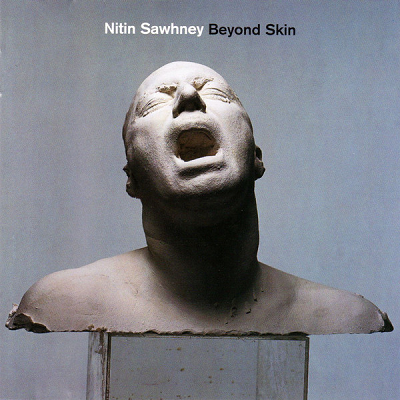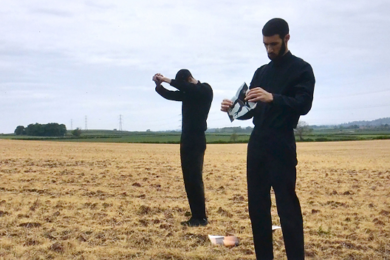1. Nitin SawhneyBeyond Skin

I heard this record through my mum. She listened to a lot of music from all around the world, and it filled our household. We were on holiday in Greece staying with a family friend and my mum was playing this album. I must have been 10 or 11 years old. I heard the track ‘Pilgrim’. I really enjoyed the lyrics and overall sound of the track. Musically it was interesting for me, and one of the first British tracks that resonated with me having listened to predominantly American R&B and hip hop.
As I have grown older the meaning behind the record continues to resonate with me. Nitin’s journey and what he was exploring with his music is very similar to me and my journey. The barriers are similar, which come with race. I understood the record to show that he is Indian but that he was born and grew up here in England. He has explained in interviews how he was introduced to a wide variety of music from his brothers and parents. He understood his place was to be of his experience. People call it ‘fusion’ music, but that is a term I dislike. To call something ‘fusion’ doesn’t fully investigate and detail the wide influences of Nitin’s music. It’s a lazy description of the practice. I think this flattening of identity is much harder to break out of if you are not white. That is where Nitin really resonated with me in terms of my own particular journey. Though it is evident my practice has been formed by a vast amount of genres and influences, the press conversation around my music has been anchored to grime, whether it be ‘experimental grime’, ‘industrial grime’, ‘deconstructed grime’ and so on. Whether this is conscious or not, this approach to my work serves to limit my artistic approach and value. It also implies that an artist like me can’t be multifaceted.
Early on I did not want to acknowledge why I was still labelled as grime. I was just caught up in the very fact it was happening. It was not until later that I wondered if my race played into that, as someone who has mixed-race heritage and is visibly not white. The weirdest thing for me was that my conversations with peers lead to comparisons to music I had never heard before. Yet the press had this other narrative for me. I felt more aligned with these artists, and I found the divergence really strange. Now I look back at Beyond Skin, and look at the meaning beyond a simplistic narrative of race. This happens so often, even with the current emphasis on the importance of inclusion.


